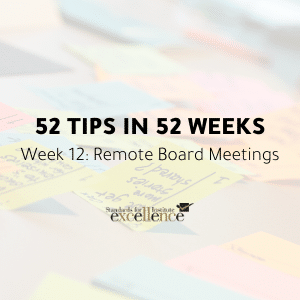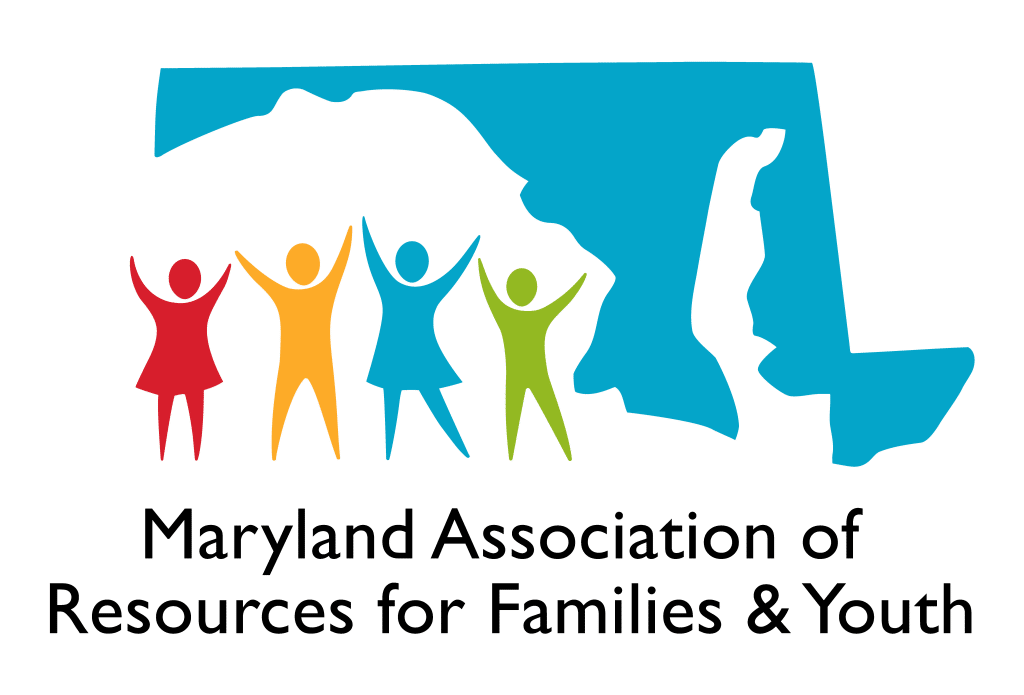This is part of a special series, brought to you by the Standards for Excellence Institute, to provide nonprofit leaders with a brief nonprofit governance and management tip weekly over the course of 2020. We hope these short tips will be helpful to you and the nonprofits you serve. If you have suggestions for future topics, please forward these to acmadsen@standardsforexcellence.org.
The Center for Disease Control (CDC) has published interim guidance for businesses and employers to reduce the spread of COVID-19 by managing risks of potential exposure. One measure the CDC is recommending is social distancing (remaining out of congregate settings, avoiding mass gatherings, and maintaining distance from others when possible). However, nonprofit boards must continue to govern, and meetings may be even more critical for direct service providers during these difficult times. The Standards for Excellence: An Ethics and Accountability Code for the Nonprofits Sector encourages each nonprofit board to meet “as frequently as needed to fully and adequately conduct the business of the organization. At a minimum, the board should meet four (4) times a year.” For all of these reasons, it is important to ensure that your bylaws provide for remote meetings, and how your state law should guide and inform your bylaws.
To facilitate remote participation in Board meetings, the Standards for Excellence Institute’s Model Bylaws provide as follows:
- Telephone and Electronic Participation: Directors may participate in Board meetings and vote on matters discussed therein, by means of a conference telephone or similar communications equipment by means of which all persons participating in such meeting can hear each other at the same time. Participation by such means shall constitute in person presence of the Director at the meeting.
- Action without Meeting: Any action which may be properly taken by the Board assembled in a meeting may also be taken without a meeting, if unanimous consent in writing setting forth the action taken is signed by all of the Directors entitled to vote with respect to the action. Such consent shall have the same force and effect as a vote of the Directors assembled and shall be filed with the minutes.
You will want to consult your state’s corporate or nonprofit law to ensure that you are acting in a manner that is consistent with the state’s regulations.
State law may describe that meetings can take place via remote communication and may provide additional definitions about what constitutes a meeting. In Maryland, the home of the Standards for Excellence Institute, telephone meetings are permitted as follows: “(1) Unless restricted by the charter or bylaws of the corporation, members of the board of directors or a committee of the board may participate in a meeting by means of a conference telephone or other communications equipment if all persons participating in the meeting can hear each other at the same time. (2) Participation in a meeting by these means constitutes presence in person at the meeting.”
Essentially, as long as it is in keeping with your state law, your board can meet remotely using telephone conferencing or other technology (Skype, zoom, etc.), as long as everyone can speak and be heard simultaneously (as if meeting in person). Additionally, the board can act without meeting as long as the vote is unanimous and recorded in writing.
We share our sincere wishes for your continued good health and patience as we all navigate these challenging and uncertain times.
The Standards for Excellence educational resource packet, Board Member Responsibilities, contains a comprehensive set of model bylaws that can be modified and customized to meet the needs of nonprofits around the country.
The Standards for Excellence Institute has made their Administrative Policies Educational Packet, Guide to Remote Work, and Crisis and Disaster Planning Resources free during this time.
Members of Maryland Nonprofits have access to this and all 27 Standards for Excellence Educational Resource Packets through the member portal.
Blog Post: What Should Be Included In Our Nonprofit’s Annual Report?




